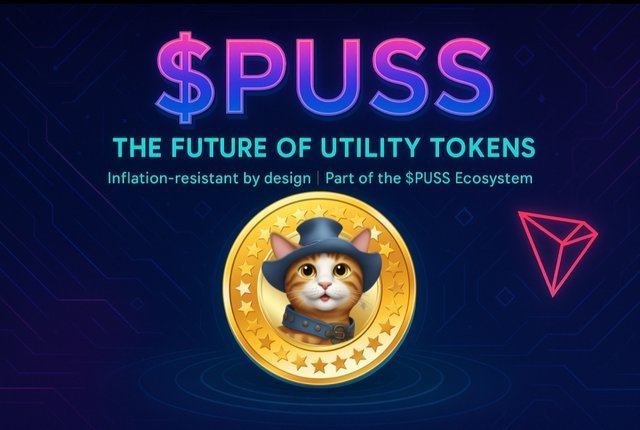
In the world of cryptocurrency, there are many factors that can affect the prices of cryptocurrency tokens and one of them is the regulation set by the financial regulatory bodies and organizations of the world, which can make it hard to attain growth and innovation in the crypto world however these projects must strive to attain mainstream adoption regardless of these regulation hurdles and challenges therefore as projects like $puss coin continue to grow in visibility and potential, especially with its unique community driven approach and utility in decentralized ecosystems, it's impossible to ignore the factor and influence of government regulation organizations.
While many crypto enthusiasts prefer to focus on the technology and opportunities that a particular crypto project offers as the main factor that determines their success in adoption and their price I think the real factor they should really consider is the relationship of that project with regulatory bodies and also the regulatory decisions the projects make whether they are favorable or restrictive or if they can have a direct and often dramatic impact on the value of the cryptocurrency token we try to take this into consideration and ask these questions when dealing with the $puss coin.
That is why in this post today, I will be exploring some of the specific regulatory hurdles and challenges that could significantly influence the price of $puss coin, please give me your undivided attention as I explain the subheadings legal classification uncertainty and compliance enforcement of kyc and aml laws.
Well one of the most pressing regulatory issues affecting the price of the cryptocurrency project $puss coin is the uncertainty around how it is legally classified, do people think it is a utility token, a security, or something else entirely? Whatever is decided or whatever the puss coin is classified to be it can have both good and very bad financial consequences for example, in some certain jurisdictions, if a cryptocurrency is labeled a "security," it comes under the heavy scrutiny of financial regulators, such as the U.S. Securities and Exchange Commission (SEC). This would mean that the $puss coin will be subject to very complex laws, expensive compliance procedures, and limitations on who can buy or trade it.
Therefore the risk of being suddenly reclassified could create panic among investors and lead to a drop in price. On the other hand, if the token is clearly identified and accepted as a utility token with a defined use case and real life application such as facilitating microtransactions or rewarding Internet of things data sharing nit only that it may also enjoy more regulatory breathing room. But until this classification is made clear and widely accepted by regulators around the world, the uncertainty alone what it will end being classified as can cause hesitation and discourage investors and traders from investing and trading puss coin, which will keep the price of $puss coin volatile.

That is the first, another major hurdle that can affect the price of $puss coin is how it aligns with Know Your Customer (KYC) and Anti-Money Laundering (AML) regulations basically governments across the world are pushing crypto platforms and projects to implement more strict and thorough identity checks and monitoring systems to prevent fraud, money laundering, and other illegal financial activities, and in as much as we understand why it is important these rules are put in place the process however of adapting to these rules isn’t always smooth—especially for decentralized projects like $puss coin.
Therefore, if regulators determine that $puss coin does not meet certain KYC or AML standards, the token could face limitations or be outrightly banned from certain platforms. This would reduce access to the coin for many users and traders, decreasing trading volume and possibly causing a price drop. Additionally, if a new regulation is passed that forces all wallets or exchanges using $puss coin to implement stricter compliance systems, the cost of meeting these standards could slow down development and adoption and on the positive side it can increase trust in the project.
In conclusion, regulation is basically one of the biggest uncontrolled and uncertain aspects of the cryptocurrency market today and for projects like $puss coin that are community focused, and aiming to deliver real world utility, regulation can either offer positive effects and advantages or negative results and disadvantages note that investors and community members will all benefit from understanding these regulatory dynamics.
Downvoting a post can decrease pending rewards and make it less visible. Common reasons:
Submit
https://x.com/Steemnigeria/status/1924576702874722533?t=RwthGsOKlm0Lpycy89wUnQ&s=19
https://x.com/Steemnigeria/status/1924577235563852012?t=kwd0MDk_cMDNaIWfVjlmCA&s=19
https://x.com/Steemnigeria/status/1924577549209813124?t=iTFvXCipG3fQkZ3tH-dwDg&s=19
Downvoting a post can decrease pending rewards and make it less visible. Common reasons:
Submit
Downvoting a post can decrease pending rewards and make it less visible. Common reasons:
Submit
Note:- ✅
Regards,
@jueco
Downvoting a post can decrease pending rewards and make it less visible. Common reasons:
Submit